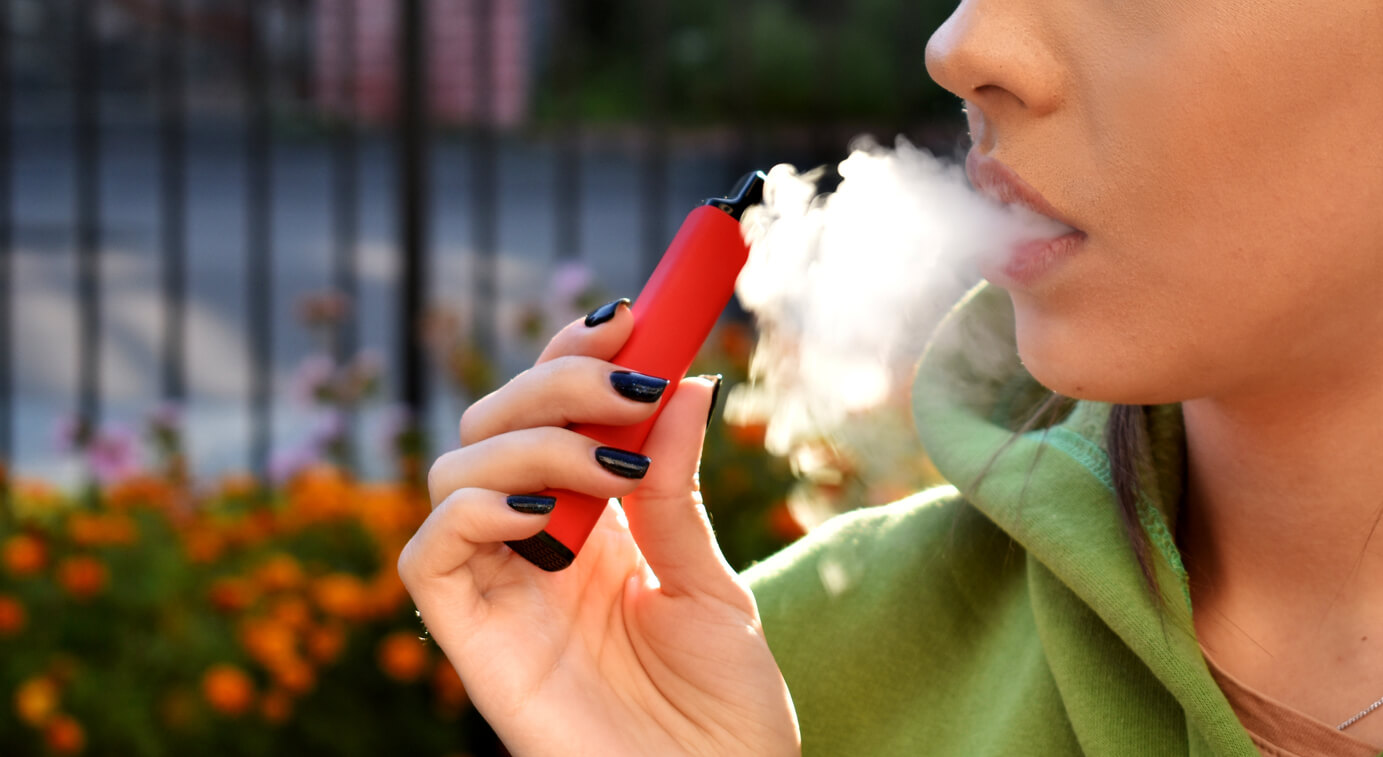Juul Labs Settles Lawsuit With Chicago for Nearly a Quarter-Billion Dollars
Editors carefully fact-check all Drugwatch.com content for accuracy and quality.
Drugwatch.com has a stringent fact-checking process. It starts with our strict sourcing guidelines.
We only gather information from credible sources. This includes peer-reviewed medical journals, reputable media outlets, government reports, court records and interviews with qualified experts.

E-cigarette maker Juul Labs Inc. settled a multimillion-dollar lawsuit with the city of Chicago this month, marking the latest in massive financial payouts from the once-thriving company.
Juul agreed to pay $23.8 million to settle a 2020 claim that it violated city ordinances by marketing and selling nicotine vaping products to Chicago’s youth. Juul denies any wrongdoing.
“Juul appealed to youth with their colorful, playful media and social media marketing and used high nicotine content to fuel ongoing use,” according to a press release from the city of Chicago announcing the settlement. “Four years after Juul’s release, over a quarter of U.S. 10th and 12th graders were using Juul nationally, and in Chicago, youth vaping had doubled.”
Juul hit the market in 2015 as an electronic nicotine delivery system that uses heat to vaporize nicotine and other ingredients. It quickly became one of the most popular vaping brands in the U.S.
A 2018 study by Truth Initiative, an anti-smoking group, found that teens ages 15 to 17 were 16 times more likely to use a Juul than adults ages 25 to 34. A Consumernotice.org report shows West Virginia, North Carolina and New Mexico are the top three states with the highest percentage of students vaping.
“We congratulate the city of Chicago in protecting our city’s youth against the dangers of vaping,” said Joel Africk, president and CEO of Chicago’s Respiratory Health Association.
“The most recent data show that in the past five years, vaping among Chicago’s school-aged children increased by 56%,” Africk added. “This settlement will go a long way in the Chicago Department of Public Health’s fight against chronic disease.”
Class-Action Suits Filed Against Juul Labs
Juul has been named in thousands of e-cigarette lawsuits since 2019. Claimants allege the company marketed to minors, didn’t fully disclose health risks, or caused significant injury or death. There are ongoing class-action lawsuits still accepting claims.
Consumers with injuries may qualify to file a lawsuit against Juul if they experienced one of the following:
- Death of a loved one
- Heart attack
- Hemorrhagic strokes, or bleeding in the brain
- Lung diseases and injuries, including bronchiolitis obliterans organizing pneumonia (BOOP) and e-cigarette or vaping product use-associated lung injury (EVALI)
- Nicotine addiction that led to worsening health conditions
- Nicotine poisoning
- Pulmonary disease
- Respiratory failure
- Seizures
- Injuries from e-cigarettes catching fire
- Injuries from exploding e-cigarettes
Juul’s Market Value Declines
At its height in 2018, Juul was valued at $38 billion. A year later the slew of lawsuits began. Since then, the company has settled thousands of cases, agreeing to pay out at least $1.9 billion in claims.
Juul announced in early December it settled a “global resolution” under federal multidistrict litigation that consolidated 5,000 cases with approximately 10,000 plaintiffs.
It declined to publicly disclose the settlement amount, but said it had “secured an equity investment to fund the resolution.” The New York Times reported the settlement was valued at $1.7 billion, making it one of Juul’s largest recorded payouts.
Resolved Juul Lawsuits
Since litigation against Juul began, there have been several notable settlements, including:
- March 2023: Juul settles with the city of Chicago for $23.8 million.
- March 2023: Tucson (Arizona) Unified School District reached a settlement with Juul for $10.6 million.
- January 2023: A class-action lawsuit in California regarding deceptive marketing practices was settled for $255 million.
- December 2022: Juul settled about 5,000 cases for an undisclosed amount. The New York Times reported the settlement amount was $1.2 billion.
- September 2022: Juul agreed to pay about $440 million to 33 states to settle claims that the vape maker marketed its products to teens.
- June 2021: The company settled with North Carolina for $40 million.
The U.S. Food and Drug Administration banned Juul in June 2022. However, after the company sued the federal agency, FDA officials put a hold on the ban so it could review more data.